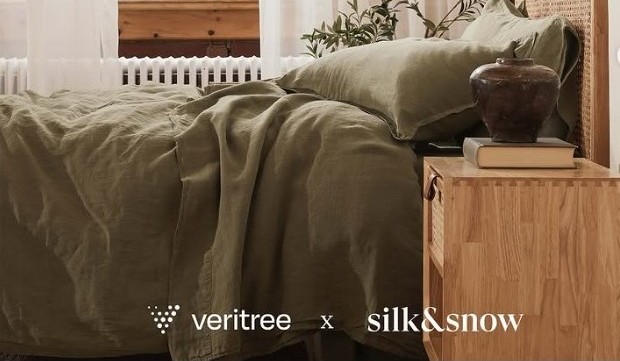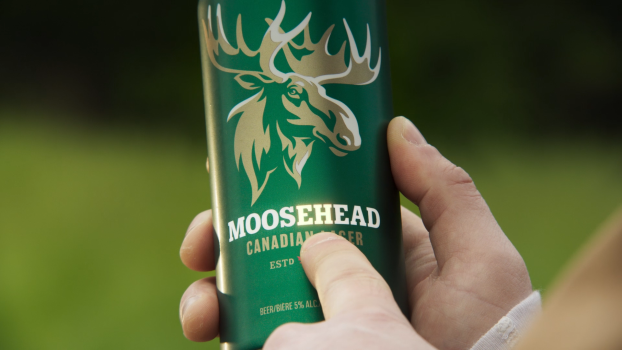Naturally, it’s Rethink. They’ve been nipping at the crown for a while now since walking away with Honourable Mention nods in 2003 and 2004 and Silver last year.
Remarkably, it’s been only seven years since Chris Staples, Tom Shepansky and Ian Grais started the Vancouver-based agency. Today, it’s undoubtedly one of the marquee agencies in the country – garnering a reputation for injecting a delightful dose of quirkiness into Canadian creative that delivers laughs, results and some serious hardware.
Case in point, this year, Rethink took the Gold AOY spot by coming up with metrosexuals for BC Lions, a know-it-all employee for Future Shop, gabby teens for Solo Mobile, an offbeat virtual bank teller for Coast Capital Savings, and of course, rats for 1-800-GOT-JUNK?, easy inspiration for our winsome cover.
But despite its growing list of noteworthy clients (its work for new clients Sobeys and Sirius Satellite Radio, recently launched), an increase in staff by 10 to 60, including the hire of creatives Martin Rivard and Nicolas Quintal in September, and increased revenues of 18%, the gutsy sense of entrepreneurialism and ingenuity that birthed the agency when Chris Staples boldly left a sparkling career at DDB has remained.
As proof, the story of how Rethink met 1-800-GOT-JUNK?
It began late last year. ‘We’d put the word out that we were thinking about advertising,’ recalls Pete Burgeson, director of marketing of the Vancouver-based junk removal company, which was rebranded under its current name in 1998.
Its execs had talked to local divisions of TBWA and Saatchi & Saatchi with little success. ‘[Those agencies] came back and said: ‘It’s going to run you a quarter of a million bucks to run these ads.’ Looking at our budget, we really didn’t have it. Until we met with Rethink, and they said: ‘We believe in you guys. We like you. We want to be associated with you. Let’s work together to make something neat here.”
Turns out, selecting Rethink was the easy part.
‘They said: ‘So if we make you this really cool ad, where you gonna run it?’ And we said: ‘Nowhere. We don’t have the money,” says Burgeson. Sure, the company had been featured on Oprah, and in The New York Times and The Wall Street Journal, but with 280 franchises in North America, there was hardly the money for substantial media buys in all the markets nor could they ensure heavy rotation.
‘After they picked their jaws up, they said: ‘Okay, so what we’re going to do then is make you something really funky. The distribution will not be so much paid airtime as it’ll get passed around, person to person.”
About half a dozen options, all funny, were presented to the company’s execs, including founder/CEO Brian Scudamore. But the work for Rat Advertising Trial, where little white rats wearing blue vests are tossed out of a truck to seek out junk, well, that was so offbeat, so bizarre they knew they had a word-of-mouth winner. So much so, they asked the team to pitch to about a dozen franchise partners that same day. ‘It was a tough position to put them in, but they packed their stuff up, drove across town and pitched it to these guys.’
Unanimous, it wasn’t, but of the 13 franchise partners at the meeting, only three voted no. ‘We expected it to be polarizing,’ says Burgeson.
The result? A spot on TBS’s World’s Funniest Commercials, being shortlisted for a Cannes Lion and at press time being shortlisted for an Ad & Design Club of Canada Award. ‘Really, just think, a glorified garbage company from Canada got on the [Cannes shortlist] with these enormous global companies. It was shocking.’ So, how do they plan to top it? ‘We’re experimenting with an élite team of kittens,’ he jokes.
And for Rethink itself, Burgeson has nothing but accolades. ‘I can’t say enough good things about those guys. Being young and in an odd category of business, there are not a whole lot of companies that would jump at a chance to work with a junk removal company. But they took a chance on us and I think we returned the favour by taking a chance with the zany ad they brought forward. It worked out amazingly.’
CASE STUDIES
SOLO MOBILE
Rethink learned from current research that Solo users fell into two camps: those who bought the cellphone mainly for its low price and rarely used the walkie-talkie feature; and those who were walkie-talkie addicts. The first group seemed to have no strong loyalty to Solo – they basically followed the lowest rate plan, and switched providers regularly; the others were loyal, speaking to their ‘circle’ of four or five users.
Fast and affordable, the technology helps youth stay social, so the agency decided to create a campaign that demonstrates how youth can keep in touch – at the touch of a button.
Two spots, both in English and French, were created, one for cinema and TV. One was aimed at students 13 to 23, and the other at those just starting their careers, aged 18 to 24. They began running in July, showing the disastrous effects of a walkie-talkie version of Broken Telephone and were supplemented by transit shelters around key youth meeting places in Montreal, Toronto, Calgary and Vancouver. Several of these TSAs featured a unique feature – passersby could press a button on a large picture of the phones and, thanks to simple technology, use the walkie-talkie components of the phone to actually have a conversation with a person at another transit shelter across the city or the country. The talking TSAs went up across the country in late August.
While it’s too early for results, the talking TSAs have generated thousands of spontaneous conversations between strangers across Canada, and were beginning to generate PR buzz. The TV work was recently an Ad Critic Top Ten and the ads were also featured in the Applied Arts Annual.
1-800-GOT-JUNK?
Although its brand awareness is high – an Ipsos Reid study showed that GOT-JUNK was the leading branded junk removal option – the vast majority of consumers still turn to family, friends and want ads to remove their junk. Moreover, junk removal was not seen as pressing until they were ready to move or interested in redecorating.
Rethink decided it was time for a brand awareness campaign that encouraged trial. But because media dollars were limited, the agency opted to be outrageous in order to reach the target of urban and suburban homeowners 35-65.
Enter RAT.
The TV and radio campaign, which centred on the Rat Advertising Trial, showed live rats outfitted in ‘GOT-JUNK’ jackets being released into neigbourhoods. The rats find the junk, the consumers find the rats and GOT-JUNK comes to the rescue.
The campaign launched in February. Its results have been spectacular – including the opening of an additional 60 franchises. And creatively, the work has also been lauded.
It was recognized at Cannes and in the Communication Arts Annual as well as being featured on U.S. network TBS’s World’s Funniest Commercials.
BC LIONS
With no star quarterback, failing to qualify for the Grey Cup, the return of the NHL and flat season ticket orders, the 2006 season was shaping up to be a challenge for the BC Lions football team.
Research found that the team’s core fans were mainly blue collar, suburban men 25-45 who considered football a primal experience that allowed guys to be guys. These men were in sharp contrast to the metrosexual influence that had become almost the norm. In fact, that phenomenon elicited a strong backlash from this target.
So Rethink went back to basics with a campaign that lampooned all things metro. TV spots parodied men on the verge of becoming metrosexual. In one, a man perusing the scented candle aisle was suddenly hit in the head with a football followed by the primal cry: ‘You need some football!’ In print, the same strategy was used, but this time to question the manliness of competing teams and their fans – so, for example, the ‘official body glitter’ of the Edmonton Eskimos. Newspaper and transit shelter ads coincided with particular games throughout the season. The campaign ran from May to the end of October.
So far so good. At press time, corporate sponsorships were up 30% from 2005.
COAST CAPITAL SAVINGS
Awareness of Coast Capital Savings’ free chequing account was reasonably high, but many consumers (both members and non-members) thought the service was either a time-limited promotion or had strings attached. Rethink’s challenge was to convince skeptical customers that the product was the real deal. Simply repeating its attributes would not be enough, so the agency opted to play up the credit union’s reputation for honesty and irreverence.
The first element of the campaign was a TV spot featuring a customer grilling a CCS teller about the perceived loopholes in the product. In the end, to make the point that ‘It’s all free at Coast Capital,’ the customers ran away with everything not bolted down in the branch.
Next was a revamp of the website, which was redesigned to mirror the credit union’s just-launched ‘open’ branch concept, a move away from the velvet ropes and lineups found in most banks in favour of a circular design. In the centre is a ‘greeter’ who meets each customer and then directs them to the appropriate person. Similarly on the website’s opening page is an ‘online greeter’ named Julie who answers questions, gives a brief explanation of the product, then directs the user to more detailed information.
The TV spot doubled the proven recall for any other Coast Capital TV execution, helping push brand awareness to 89%, a 27% jump over 2003 when the first CCS spot was broadcast. The website was also a hit, attracting 61% more visits than the old site as well as generating strong PR.
FUTURE SHOP
Future Shop’s core audience is the HTI, or the High Tech Innovator. He’s an urban male who continually dreams of his next high-tech purchase. Unfortunately, his wallet isn’t often in agreement, so price is a deciding factor. Research also showed that the target had an
off-kilter funny bone and was drawn to shows like Family Guy.
The agency therefore created a campaign that aimed to unite this quirky sensibility and the brand’s ‘Get it for less guarantee,’ which promises that the chain will beat any competitor’s price by 10%. The result was a series of spots, in English and French, featuring the impossibly keen Future Shop associate. In one spot, over-eager associates create their own in-store ad, seemingly inspired by ’80s pop band, Devo.
And to deal with the chain’s constant weekly sales events, Rethink created a recyclable ad, ‘Overdub,’ which was used for six different sales events over eight weeks. In it, a consumer talked to an associate, with the name of the sale – from Father’s Day to the Big Screen TV – humorously dubbed over the associate’s voice.
Sales and tracking have both shown impressive jumps since the campaign launched.























